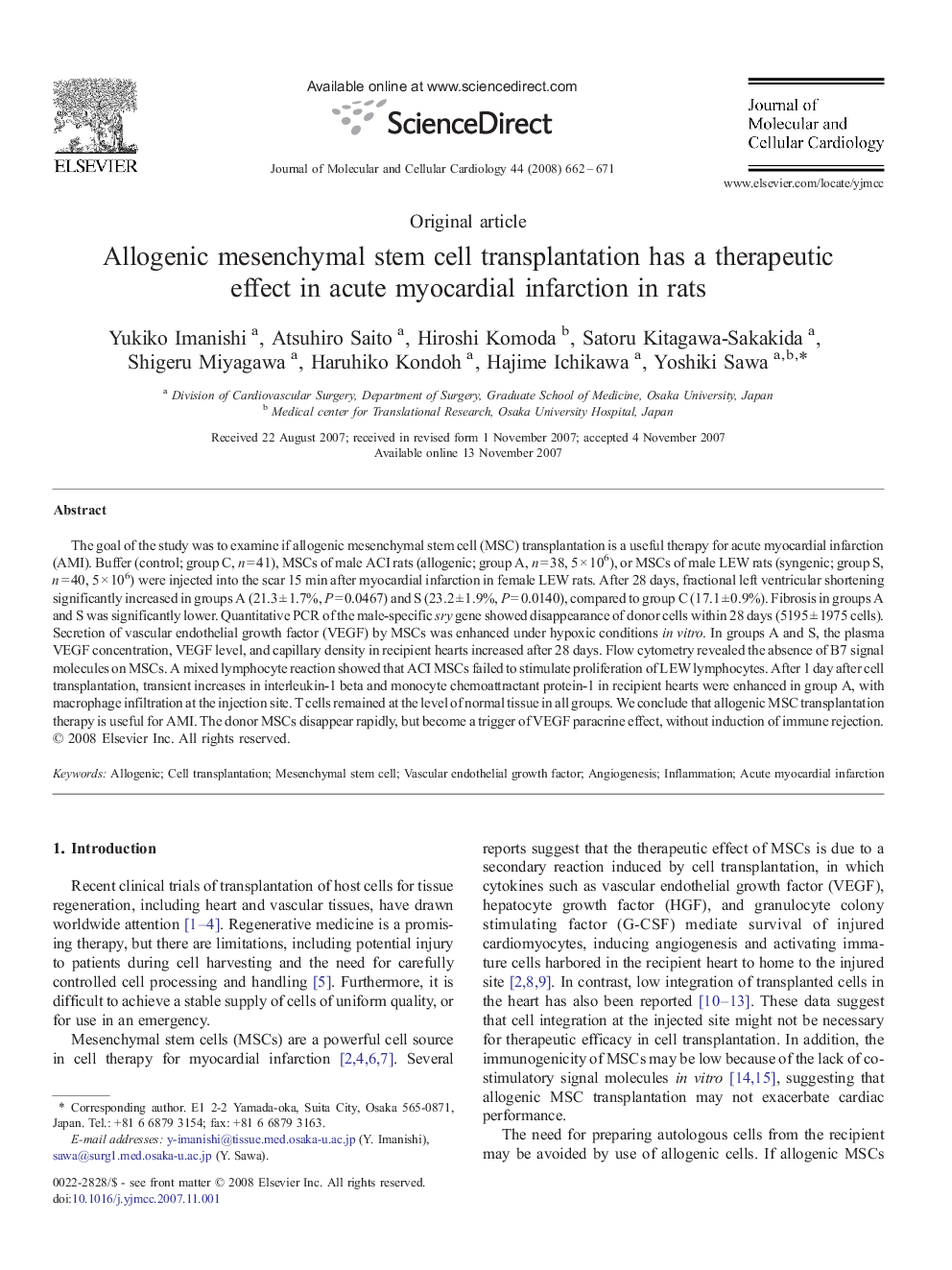| Article ID | Journal | Published Year | Pages | File Type |
|---|---|---|---|---|
| 2191266 | Journal of Molecular and Cellular Cardiology | 2008 | 10 Pages |
The goal of the study was to examine if allogenic mesenchymal stem cell (MSC) transplantation is a useful therapy for acute myocardial infarction (AMI). Buffer (control; group C, n = 41), MSCs of male ACI rats (allogenic; group A, n = 38, 5 × 106), or MSCs of male LEW rats (syngenic; group S, n = 40, 5 × 106) were injected into the scar 15 min after myocardial infarction in female LEW rats. After 28 days, fractional left ventricular shortening significantly increased in groups A (21.3 ± 1.7%, P = 0.0467) and S (23.2 ± 1.9%, P = 0.0140), compared to group C (17.1 ± 0.9%). Fibrosis in groups A and S was significantly lower. Quantitative PCR of the male-specific sry gene showed disappearance of donor cells within 28 days (5195 ± 1975 cells). Secretion of vascular endothelial growth factor (VEGF) by MSCs was enhanced under hypoxic conditions in vitro. In groups A and S, the plasma VEGF concentration, VEGF level, and capillary density in recipient hearts increased after 28 days. Flow cytometry revealed the absence of B7 signal molecules on MSCs. A mixed lymphocyte reaction showed that ACI MSCs failed to stimulate proliferation of LEW lymphocytes. After 1 day after cell transplantation, transient increases in interleukin-1 beta and monocyte chemoattractant protein-1 in recipient hearts were enhanced in group A, with macrophage infiltration at the injection site. T cells remained at the level of normal tissue in all groups. We conclude that allogenic MSC transplantation therapy is useful for AMI. The donor MSCs disappear rapidly, but become a trigger of VEGF paracrine effect, without induction of immune rejection.
